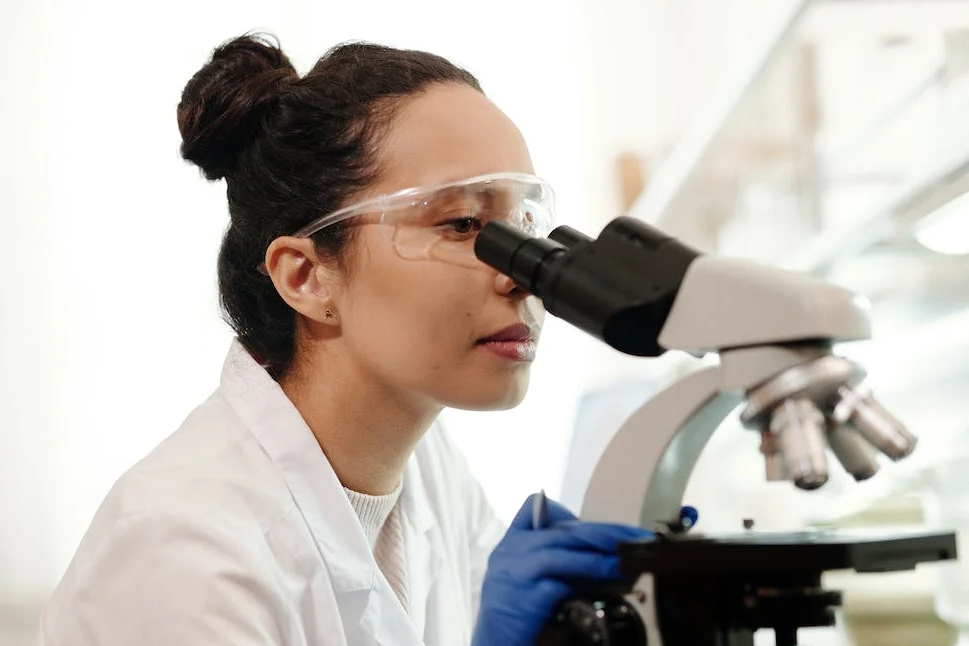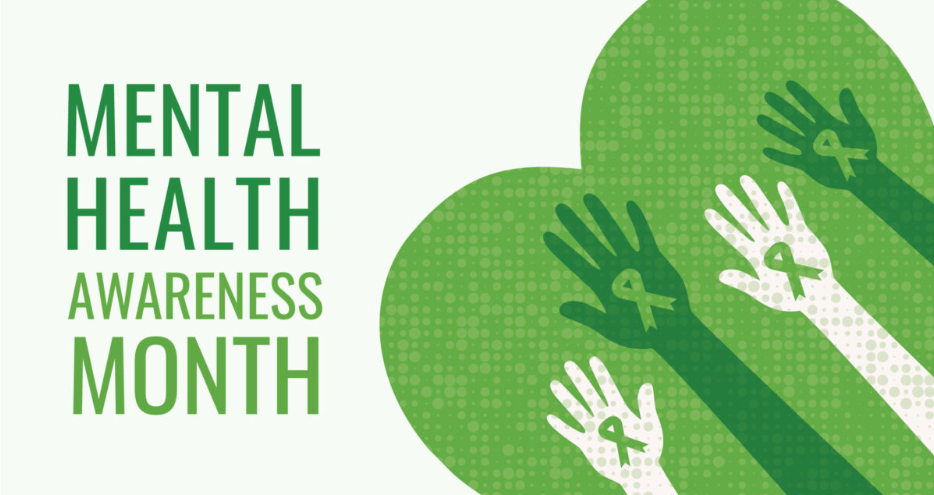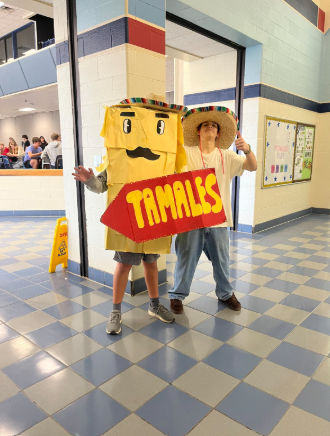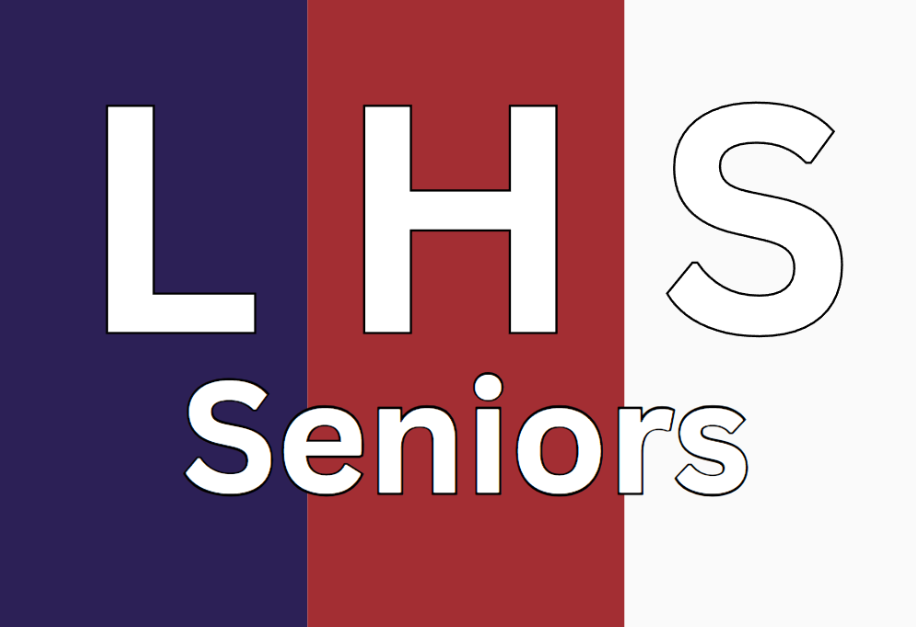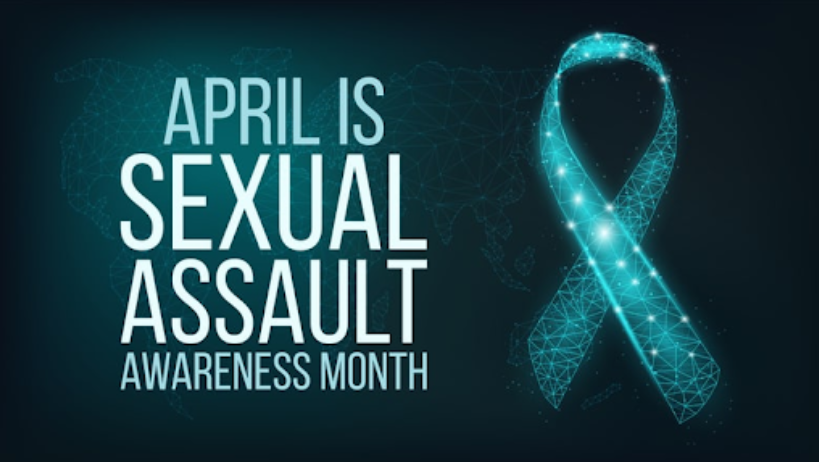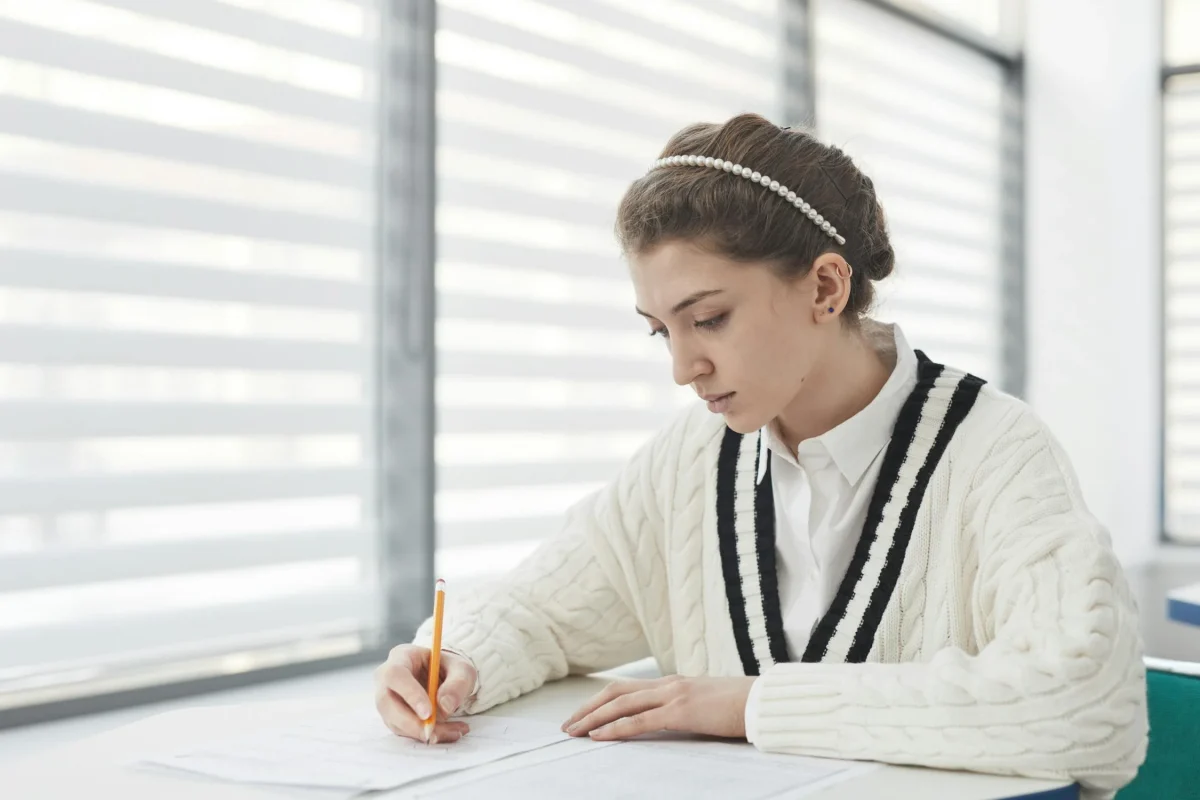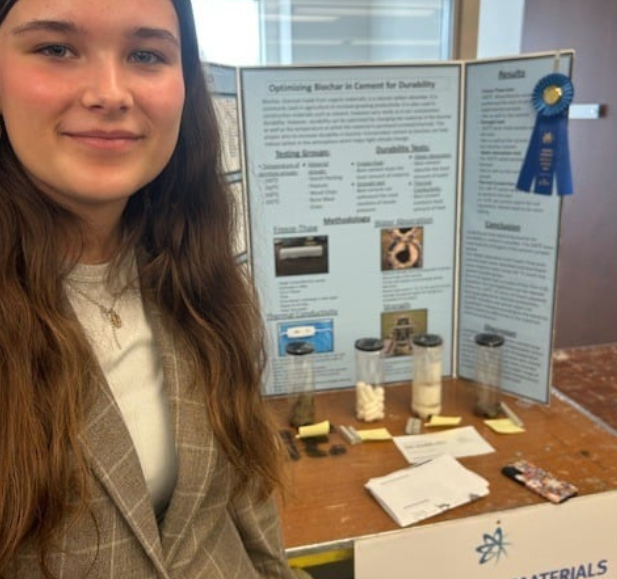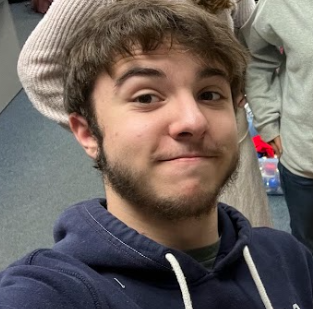According to the Diversity and STEM report by the Nation Science Foundation and National Center for Science and Engineering Statistics, as of 2021, only 35% of the STEM workforce in the US comprises women. As indicated by the same report, minority groups only occupy 35% of the total STEM workforce, both men and women. These numbers show the truth, highlighting the continually pressing need for representation in the STEM field. Among a crowd of those with big aspirations, Liberty High School is home to a population of women and minority students putting the ‘science’ in STEM and working to reach their goal.
One of these students is Mel Arias, a junior at Liberty High School who possesses an interest in pursuing a career in microbiology.
“Microbiology just amazes me. Cells, bacteria, DNA—all the little things,” states Arias, “Mountain Vista Governor’s School helped ignite my passion for biology. They helped me deepen my knowledge and made me fall in love with it even more. It challenges me, but I like challenges.”
Moreover, Arias likes to take on challenges far more complex than in her science classes. As a big advocate for equity in the STEM field, Arias highlights the history of men and women in science and looks toward challenging the status quo.
“Throughout history, almost every time you hear someone talk about science, it’s of a man. We are severely underrepresented in the community. We work just as hard as others do, but it takes twice as much for us to prove ourselves. If there’s any woman or minority who is interested in STEM, don’t get discouraged. Not by anyone or anything else,” shares Arias.
Arias mentions a program known as EcologiGALs. Created by the nonprofit organization Sustainability Matters in partnership with Fairfax County Neighborhood and Community Services, EcologiGALs aims to propel equity by creating career opportunities in the field of environmental science for high school-aged young women in northern Virginia.
“I think what EcologiGALs does is amazing, helping teenage girls find their passion in environmental science. I believe there’s still room for improvement until we see complete diversity, but it’s a huge step in the right direction,” expresses Arias.
As Arias pursues science on the microscopic level, Kelly Pineda Paz, a sophomore at Liberty, looks at things on the macro level with an all-around love for science and a soft spot for animals.
“Every type of science is appealing to me, but I am interested in being a veterinarian and I plan on going to college for it. If not veterinary, something science-related. Since I was a little girl, I’ve always liked nature and always went out exploring. I’ve also had a lot of pets: bunnies, guinea pigs, cats, dogs,” said Pineda Paz.
However, Pineda Paz’s dreams lie far past simply becoming a veterinarian. Beyond a college education, Pineda Paz looks at veterinary medicine in a new way that aims to bring a dash more of humanity into the practice.
“I don’t plan on just going to an office and becoming a vet. I want to start my own business. My own veterinary office where I can help out not only animals but people who are struggling financially and don’t have enough money to take care of the pets they call their family. I want to show that a woman can achieve a business that is, just, so big and can help out so many,” shared Pineda Paz.
With big ambitions to help others, Pineda Paz recognizes those who are working towards a service bigger than themselves and shares some words for people like her looking to make a difference.
“I would say: pursue it. Don’t give up and continue doing what you love,” shared Pineda Paz.
Like Pineda Paz, another sophomore, Leslie Linton, has an affinity for animal sciences. Linton has dreams of examining wildlife through the unique practice of necropsy and inherits her interest in agricultural and animal sciences from her family.
“I’ve grown up with agriculture on both sides. My mom grew up on a farm, my dad grew up on a farm, and then I grew up on a farm. I’m very interested in animal science and I want to do necropsies, specifically. It ties in science and agriculture which for me is, like, the best of both worlds,” shares Linton.
Similar to Arias and Pineda Paz, Linton discusses the expectations and precedences that have festered in science over time. Giving her viewpoint on the societal norms that have been set, Linton shares her perspective on the need for inclusion and diversity in STEM.
“Because of the history of science, sometimes I feel like a lot of people think that those types of fields are only driven by men. Women have an interest in these things too, but they don’t always go for it because of that,”
Additionally, Linton voices her opinion on the problem head-on: people are not being invigorated enough to appreciate science. Linton encourages those to look at science beyond the class work and approach the topic in a way that will intrigue people.
A lot of people need to learn that science isn’t bad,” expresses Linton, “People have just seemed to have always held a hatred for science in a way. They think it’s ‘uninteresting’ or ‘boring’. When you look at it from a perspective not from a textbook, you’ll realize how fascinating it is.”
Amid the bright minds of future scientists at Liberty, Mary Rodman is a passionate senior with a one-of-a-kind enthusiasm for environmental science. Through connecting with the outdoors, Rodman expresses her affection for the subject.
“I’m just passionate about the health of our environment. I’ve always enjoyed being in nature and I’ve always been involved with things like hiking and just taking in nature. While I’ve thought about pursuing a career in the field, I also have other interests not in STEM,” shares Rodman.
In the spring of 2023, Rodman had the opportunity to take her passion to the next level. Conducting research on microplastics over the summer of 2022, Rodman made a mark in the field of plant science, presenting her research at the Virginia Piedmont Regional Science Fair.
“I had just seen a lot of things about microplastics. They’re making their way into the agriculture industry, and it felt like a relevant topic to research,” said Rodman, “My project studied the presence of microplastics in the soil and how it affects the growth of produce. I grew a few sets of carrots with different concentrations of microplastics and observed the physical differences: the mass, the length of the stem, etc.”
Rodman’s research proved to be an outstanding display of knowledge, gaining her an impressive position in her regional category.
“I went to the regional science fair, and I got first place in the category of plant sciences. After that, I moved up to the state science fair and placed fourth. I was pretty close to moving to the international fair, but I’m still happy about my accomplishment,” shares Rodman.
While Rodman sees a general amount of diversity in the base levels of sciences, she voices her concerns about the lack of unique voices in the more advanced fields and shares her words of motivation.
“As you move into the higher levels of STEM careers, you start seeing fewer and fewer women. Like really anything else, when you have less of a perspective and a smaller variety of experiences, some things can be overlooked. A word of advice for people: just do what you’re passionate about. If I was able to talk to my younger self, I’d say, ‘Keep slaying, and you do you’,” states Rodman.
In the population of students at Liberty, these women exemplify the aspects of those bound to make a difference in the world of science. At Liberty, the school’s science department is full of incredible teachers who profess knowledge in all sorts of sciences and look forward to shaping the future.
One of these remarkable instructors is LHS chemistry teacher, Mrs. Clark. Discussing her multi-generational affection for science, Clark reflects on growing up with science and why she decided to teach the subject.
“Science runs in my family. My dad was a scientist, one of my grandfathers was a chemical engineer, and the other one was a veterinarian, so a lot of us were already in the field. In middle school, my dad would tell me about all of his science. I liked my science classes, and a lot of my friends were also into science, so I was in the ‘nerdy’ group,” shares Clark.
Clark states that, originally, she had eliminated the idea of becoming a teacher due to her fear of public speaking. However, after taking classes and trial education classes, she applied to a graduate program.
“Even though I liked school and I thought I would like it, the idea of standing in front of people terrified me. I took a public speaking class, which then made me consider it. I could’ve taught a lot of different subjects, but I enjoy teaching science. It integrates a lot of things—math, writing, interpreting, and analyzing results. It’s not focused on any one idea,” states Clark.
While Clark reflects on the range of diversity encountered from her internship at GlaxoSmithKline and meeting people from all over the world, she comments on the number of women compared to men that have been historically set time and time again in the world of science.
“Historically, it has been dominated by men, and whenever you have a field that is largely one group of people they tend to hire those that look, sound, and act like them. You kind of have to ‘crack’ into that group to get it to open up,” states Clark.
Clark is dedicated to creating a learning environment ensuring that every student has an equal opportunity for success, leaving no student behind. Whether it’s playing games to entertain the class or drilling in review questions, Clark hopes that her students can take away at least one thing from learning with her: enjoying themselves.
“I hope they have fun. I have a sense of humor and I hope that comes through. I hope they come out of my class not hating science and chemistry. It can be a challenge, so I hope they feel supported and valued in my class,” shares Clark.
Like Clark, another science teacher at LHS is devoted to guiding the younger generation toward a love for science. Biology teacher, Mrs. Wilkemeyer, shares her upbringing in science and the reasons why she decided to teach.
“I’ve always loved biology and life. I grew up on a farm and I spent a lot of time outdoors. Hiking, nature, scuba diving. It’s just natural. Originally, I wanted to be a zoo nutritionist and that’s what I studied for. However, when I had kids, my goals changed. I didn’t want to have to be commuting every day to a zoo while, at the time, also running a daycare with my own children and other kids,” shares Wilkemeyer.
However, through running a daycare, Wilkemeyer realized her true calling in teaching.
“I discovered a passion for challenging them, keeping them active and following through lesson plans for them even at the preschool level, which brought me into that route,” states WIlkemeyer, “I was a long-term substitute at P.B. Smith for a year and a half as an elementary special education aid. From there, I decided to get my teaching endorsement and teach older students.”
As a biology teacher, Wilkemeyer pushes for scientific literacy in her students. Understanding the current opinion on science in the media, she emphasizes the need for more people to be involved in the field.
“I think the future of our planet is pretty bleak. We need more people involved in the sciences and educating others. I think a lot of the mentality right now is both a distrust and a dislike of science. Instead of embracing the complex parts of life, people just turn them down for being ‘too hard’,” expresses Wilkemeyer.
Similar to Clark and many other teachers at Liberty, Wilkemeyer stays true to the principles of being a teacher. Through creative assignments, hands-on labs, and truly engaging experiences that are far beyond writing notes and doing paperwork, Wilkemeyer aims to give life to her classes and encourages success in every student.
“I always give my students opportunities for success. Not penalizing them for turning in assignments a little late, giving students a chance to do retakes, and other ways they can succeed, even if it is hard and they have to put more work into it. I also try to have creative and engaging labs, especially at the honors level,” shares Wilkemeyer.
Wilkemeyer teaches her students with the aim of guiding them to understand how the world works around them and hopes that her students will put their knowledge to good use.
“I hope that my students are able to understand the scientific processes that will help them put more trust into science. I hope that they see the true amazingness and uniqueness of life,” said Wilkemeyer.
In the ever-changing world of science, these students demonstrate what it means to be passionate. Challenging the traditions set by society, these outstanding women and many others send a clear message that science and the rest of the STEM field know no boundaries, being open for everyone to discover. Thanks to the incredible teachers in the science department at Liberty who push their students to explore their interests, every day becomes brighter for the women and minorities looking to make a difference in the world.

